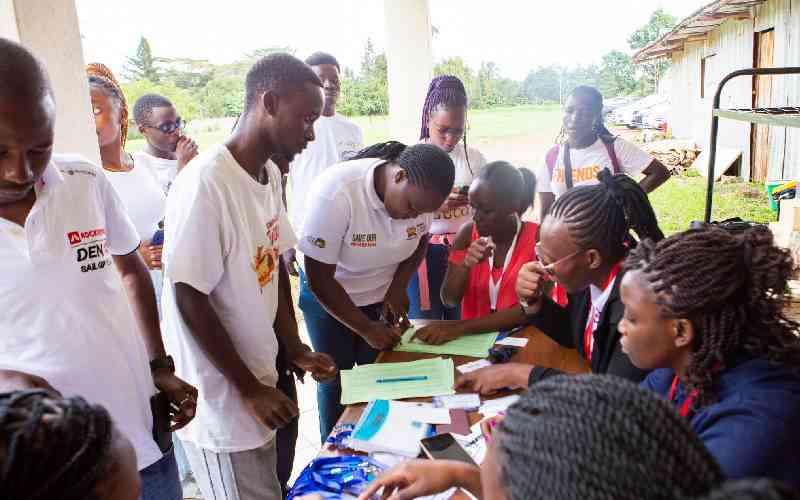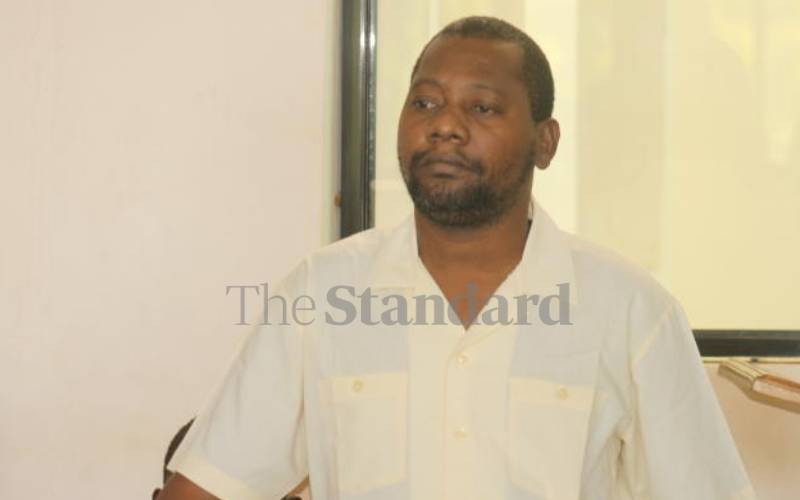By Ernest Ndunda
Mombasa Republican Council (MRC) has been receiving tacit financial support from the political class, a joint parliamentary committee has revealed.
In a report seen by The County Weekly, the joint Departmental Committee on Administration and National Security, and the Select Committee on Equal Opportunity committee reveals the separatist group has used drugs and oaths to bind adherents and had secret ties to Christian and Muslim agencies that in public purport to oppose them.
The panel of MPs who investigated MRC’s secessionist demands declared in the report set for debate in Parliament early September that the secession for the Coast described as “one of the most strategic zones of the country and indeed the entire East African [region]” is neither acceptable nor a genuine solution to problems of development at the Coast.
The report finds that daring raids by suspected MRC supporters in Malindi, Kilifi and Kwale where police lost guns without arrest gave “potential recruits undue confidence” that the alleged oaths are potent enough to protect them from police action.
Not unique to coast
According to the report, the MRC and its financiers have weaved a complex tale of alleged marginalisation and economic backwardness and unemployment at the Coast and purported to engineer “a ray of hope” by exhorting local people to believe the region will be independent next year at the expiry of an alleged treaty that forced them into a union with Kenya.
But the panel dismisses this belief system, fostered by illiteracy and traditional oaths saying the problems MRC propagates are not unique to the region.
“The grievances MRC propagates are not just coastal, but Kenyan problems which cut across in their various forms...” the report says and expresses hope that recent court ruling lifting the 2009 ban on the separatists will disperse the appeal of MRC’s rebellion.
The report of the joint Departmental Committee on Administration and National Security, and the Select Committee on Equal Opportunity on the matter of the inquiry into the activities of the MRC established that political class, particularly from those who fear losing their political support base for failure to identify with MRC’s platform and demands were financing the council’s activities.
The report dated August 23, 2012 further reveals that MRC has also been getting additional support from religious and/or pressure groups.
The Council of Imams and Preachers of Kenya (CIPK), Pwani Church and MUHURI CSO have been giving support to MRC, according to the report.
“Additional support for the MRC comes from religious and/or pressure groups such as the Council of Imams and Preachers of Kenya, Pwani Church and MUHURI CSO,” the report reads in part
Oath administration
While there is a group known as Council of Imams and Preachers of Kenya, it is not clear what the report means by Pwani Church and MUHURI CSO although there are groups active in this region with similar names.
Stay informed. Subscribe to our newsletter
The Joint Committee, which was co-chaired by Mohammed Affey and Fred Kapondi further established that the administration of oath by traditional medicine men bolstered the recent incidents where the MRC attacked and snatched firearms without being arrested or killed.
“These incidents have given potential recruits undue confidence that the medicine and oath administered on them actually works,” says the report.
The report further notes administering of the oath was apparent in the Malindi mock election exercise incident, the two Chonyi incidents (at the Chief’s camp and Independent Electoral and Boundaries Commission (IEBC) sensitisation) among others.
The report reveals that MRC leadership structure and its potential to mobilise are real as the group is determined to ensure that the Government addresses the region’s grievances.
“The group is capitalising on the fairly big following it commands from the people of the Coast Province, which is drawn from the common problems arising from marginalisation by successive governments for close to 50 years,” says the report.
Constitution
The committee further found that MRC was keen to push the Government to concede to their demands and is willing to use force through civil strife to achieve these demands.
As a result, the committee established that MRC demands constitute problems that can be addressed timely and imaginatively within the context, spirit and provisions of the Kenyan Constitution.
“The grievances and problems MRC propagates are not just coastal, but Kenyan problems, which cuts across the entire country in their various forms given their nature and character, which are of general application to the matters social and economic marginalisation in Kenya,” said the report.
The committee recommends that deeper synchronised dialogue and consultations set on the basis of mutual respect of all involving Government authorities and the leadership of coastal communities were necessary, to seek effective solutions to the resolution of the socio-economic problems of the coastal communities.
The report further indicates that it is imperative to work out common solutions with the coastal communities and set out specific and customised action plans, which they and relevant Government organs have to implement for the better welfare and development of the Kenya coastal region and communities.
The committee also established that the recent court ruling that MRC was not an illegal group and could therefore exercise its constitutional rights such as freedom of association, movement and free speech buoyed the group and rejuvenated its energies over its persistent quest for secession.
In its final recommendations, the joint committee recommends that Ministry of Lands take a fast and bold move to expedite the process of land adjudication and settlement of genuine squatters.
The committee also recommends Ministry of Education should constitute a task-force to investigate and ascertain the emergent causes for the steady deterioration and disinterest in embracing formal education in the Coast region.
The 66-page report also recommends that there was need to initiate sensitisation campaigns.
a church accused of funding MRC
By Ernest Ndunda
Mombasa Republican Council (MRC) has been receiving tacit financial support from the political class, a joint parliamentary committee has revealed.
In a report seen by The County Weekly, the joint Departmental Committee on Administration and National Security, and the Select Committee on Equal Opportunity committee reveals the separatist group has used drugs and oaths to bind adherents and had secret ties to Christian and Muslim agencies that in public purport to oppose them. The panel of MPs who investigated MRC’s secessionist demands declared in the report set for debate in Parliament early September that the secession for the Coast described as “one of the most strategic zones of the country and indeed the entire East African [region]” is neither acceptable nor a genuine solution to problems of development at the Coast.
The report finds that daring raids by suspected MRC supporters in Malindi, Kilifi and Kwale where police lost guns without arrest gave “potential recruits undue confidence” that the alleged oaths are potent enough to protect them from police action.
Not unique to coast
According to the report, the MRC and its financiers have weaved a complex tale of alleged marginalisation and economic backwardness and unemployment at the Coast and purported to engineer “a ray of hope” by exhorting local people to believe the region will be independent next year at the expiry of an alleged treaty that forced them into a union with Kenya.
But the panel dismisses this belief system, fostered by illiteracy and traditional oaths saying the problems MRC propagates are not unique to the region.
“The grievances MRC propagates are not just coastal, but Kenyan problems which cut across in their various forms...” the report says and expresses hope that recent court ruling lifting the 2009 ban on the separatists will disperse the appeal of MRC’s rebellion.
The report of the joint Departmental Committee on Administration and National Security, and the Select Committee on Equal Opportunity on the matter of the inquiry into the activities of the MRC established that political class, particularly from those who fear losing their political support base for failure to identify with MRC’s platform and demands were financing the council’s activities.
The report dated August 23, 2012 further reveals that MRC has also been getting additional support from religious and/or pressure groups.
The Council of Imams and Preachers of Kenya (CIPK), Pwani Church and MUHURI CSO have been giving support to MRC, according to the report.
“Additional support for the MRC comes from religious and/or pressure groups such as the Council of Imams and Preachers of Kenya, Pwani Church and MUHURI CSO,” the report reads in part
Oath administration
While there is a group known as Council of Imams and Preachers of Kenya, it is not clear what the report means by Pwani Church and MUHURI CSO although there are groups active in this region with similar names.
The Joint Committee, which was co-chaired by Mohammed Affey and Fred Kapondi further established that the administration of oath by traditional medicine men bolstered the recent incidents where the MRC attacked and snatched firearms without being arrested or killed.
“These incidents have given potential recruits undue confidence that the medicine and oath administered on them actually works,” says the report.
The report further notes administering of the oath was apparent in the Malindi mock election exercise incident, the two Chonyi incidents (at the Chief’s camp and Independent Electoral and Boundaries Commission (IEBC) sensitisation) among others.
The report reveals that MRC leadership structure and its potential to mobilise are real as the group is determined to ensure that the Government addresses the region’s grievances.
“The group is capitalising on the fairly big following it commands from the people of the Coast Province, which is drawn from the common problems arising from marginalisation by successive governments for close to 50 years,” says the report.
Constitution
The committee further found that MRC was keen to push the Government to concede to their demands and is willing to use force through civil strife to achieve these demands.
As a result, the committee established that MRC demands constitute problems that can be addressed timely and imaginatively within the context, spirit and provisions of the Kenyan Constitution.
“The grievances and problems MRC propagates are not just coastal, but Kenyan problems, which cuts across the entire country in their various forms given their nature and character, which are of general application to the matters social and economic marginalisation in Kenya,” said the report.
The committee recommends that deeper synchronised dialogue and consultations set on the basis of mutual respect of all involving Government authorities and the leadership of coastal communities were necessary, to seek effective solutions to the resolution of the socio-economic problems of the coastal communities.
The report further indicates that it is imperative to work out common solutions with the coastal communities and set out specific and customised action plans, which they and relevant Government organs have to implement for the better welfare and development of the Kenya coastal region and communities.
The committee also established that the recent court ruling that MRC was not an illegal group and could therefore exercise its constitutional rights such as freedom of association, movement and free speech buoyed the group and rejuvenated its energies over its persistent quest for secession.
In its final recommendations, the joint committee recommends that Ministry of Lands take a fast and bold move to expedite the process of land adjudication and settlement of genuine squatters.
The committee also recommends Ministry of Education should constitute a task-force to investigate and ascertain the emergent causes for the steady deterioration and disinterest in embracing formal education in the Coast region.
The 66-page report also recommends that there was need to initiate sensitisation campaigns.
 The Standard Group Plc is a
multi-media organization with investments in media platforms spanning newspaper
print operations, television, radio broadcasting, digital and online services. The
Standard Group is recognized as a leading multi-media house in Kenya with a key
influence in matters of national and international interest.
The Standard Group Plc is a
multi-media organization with investments in media platforms spanning newspaper
print operations, television, radio broadcasting, digital and online services. The
Standard Group is recognized as a leading multi-media house in Kenya with a key
influence in matters of national and international interest.
 The Standard Group Plc is a
multi-media organization with investments in media platforms spanning newspaper
print operations, television, radio broadcasting, digital and online services. The
Standard Group is recognized as a leading multi-media house in Kenya with a key
influence in matters of national and international interest.
The Standard Group Plc is a
multi-media organization with investments in media platforms spanning newspaper
print operations, television, radio broadcasting, digital and online services. The
Standard Group is recognized as a leading multi-media house in Kenya with a key
influence in matters of national and international interest.








